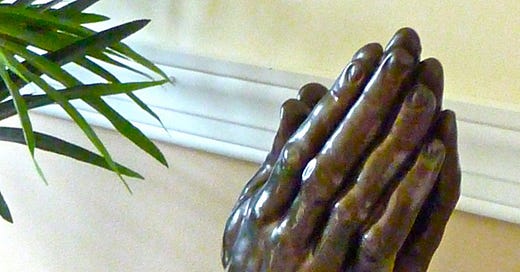I recently got the jab. Moderna.
They sat me in the office for 15 minutes afterward to see if I might keel over. 32 hours later, a lot of my Facebook friends knew and one of them offered prayers. The person who did so is one of the most queer individuals I know, not in the modern sexual connotation of the word although that actually might apply. But whe…
Keep reading with a 7-day free trial
Subscribe to Stoic Observations to keep reading this post and get 7 days of free access to the full post archives.




